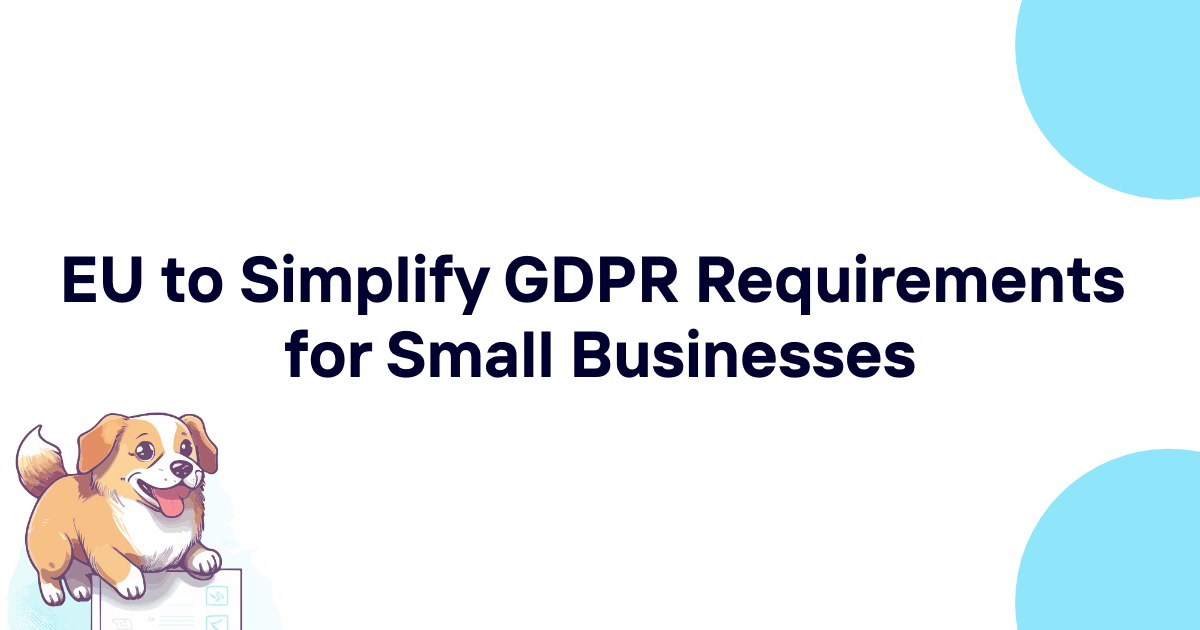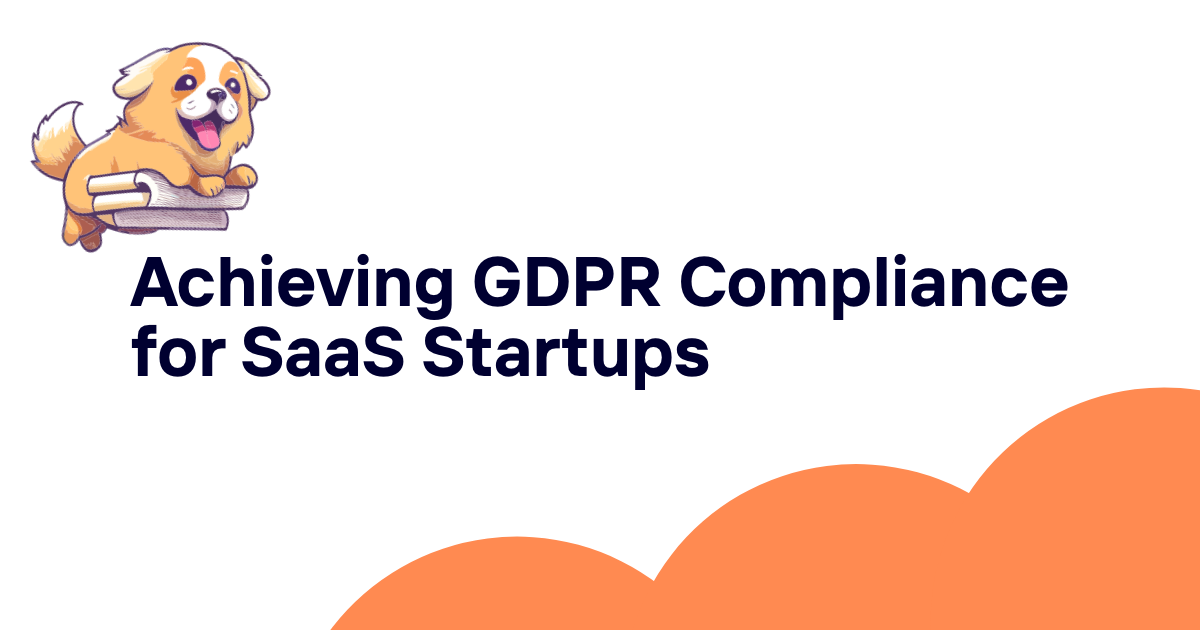Introduction
The General Data Protection Regulation (GDPR) has been both a blessing and a curse since its implementation in 2018. While it has established unprecedented protections for EU citizens' data, it has also created significant compliance challenges, especially for small and medium-sized enterprises (SMEs). Now, the European Commission is taking steps to simplify these requirements without compromising the core principles that make GDPR the gold standard for data protection worldwide.
The proposed changes aim to reduce administrative burdens while maintaining robust privacy protections. This shift comes as part of a broader EU initiative to boost economic competitiveness and reduce regulatory friction for businesses operating within the bloc.
Table of Contents
-
EU to Simplify GDPR Requirements for Small Businesses
- Introduction
- The Current GDPR Burden on SMEs
- Why the EU Is Proposing Changes
- The Draghi Report's Influence
- Specific Simplification Measures Being Considered
- Timeline for Proposed Changes
- Reaction from Data Privacy Experts
- Balancing Innovation and Privacy Protection
- Regional Inconsistencies in GDPR Enforcement
- Financial Impact of GDPR Compliance
- The GDPR's Role in Global Data Protection
- Potential Lobbying Challenges
- Core Principles That Will Remain Unchanged
- How Businesses Can Prepare for the Changes
- Simplifying GDPR Compliance with Technology Solutions
- Conclusion
The Current GDPR Burden on SMEs
Small businesses have been disproportionately affected by GDPR compliance requirements. Unlike larger corporations with dedicated legal and compliance departments, SMEs often lack the resources to navigate the complex web of documentation, record-keeping, and technical requirements imposed by the regulation.
The current GDPR framework requires organizations of all sizes to:
- Maintain detailed records of processing activities
- Conduct data protection impact assessments
- Implement appropriate technical and organizational measures
- Establish procedures for handling data subject requests
- Document the legal basis for all data processing activities
For companies with less than 500 employees, these requirements can consume significant time and financial resources that could otherwise be directed toward growth and innovation. Many small business owners find themselves choosing between proper compliance and business development, creating an unsustainable tension.
Why the EU Is Proposing Changes
The European Commission's motivation for simplifying GDPR stems from a growing recognition that regulatory burden may be hampering economic growth and innovation within the EU. This is particularly concerning as the bloc seeks to maintain competitive footing with other global powers like the United States and China.
European Commissioner Michael McGrath, who oversees data privacy laws, has explicitly stated that the goal is to "ease the burden" on smaller organizations while "preserving the underlying core objective of our GDPR regime." This balanced approach reflects an understanding that privacy protection and economic vitality need not be mutually exclusive.
Danish Digital Minister Caroline Stage Olsen put it bluntly: "We don't need to regulate in a stupid way." This pragmatic perspective highlights a shift in EU regulatory thinking toward more business-friendly implementation without sacrificing the fundamental privacy rights enshrined in EU law.
The Draghi Report's Influence
A significant catalyst for the proposed GDPR simplification was the landmark report on European competitiveness authored by former Italian Prime Minister Mario Draghi. Released in September, the report didn't pull any punches in its assessment of the EU's regulatory environment.
Draghi's report identified several specific issues with the GDPR:
- Inconsistent enforcement across member states
- Fragmentation due to national variations in implementation
- Legal uncertainty for businesses operating across borders
- High compliance costs, particularly for data-intensive industries
- Potential limitations on AI innovation due to regulatory uncertainty
The report concluded that "the EU's regulatory stance towards tech companies hampers innovation" and called for "developing simplified rules and enforcing harmonised implementation of the GDPR."
Specific Simplification Measures Being Considered
While the European Commission has not yet released the full details of its simplification plan, several key areas have been identified for potential reform:
- Record-keeping requirements: Reducing documentation burdens for organizations with fewer than 500 employees
- Data processing registries: Simplifying the maintenance of processing activity records
- Impact assessments: Creating streamlined processes for conducting data protection impact assessments
- Cross-border compliance: Harmonizing implementation to reduce fragmentation between member states
- Children's data protection: Standardizing age of consent definitions across the EU
Justice Commissioner Michael McGrath has emphasized that these changes will be targeted specifically at easing compliance for SMEs rather than diluting the core protections of the regulation.
Timeline for Proposed Changes
The European Commission is moving relatively quickly with its GDPR simplification initiative. According to the Commission's agenda, the plan was initially scheduled for unveiling on April 16, but has been pushed to May 21, 2025.
A Commission official noted that this date is "only indicative" but confirmed that the proposal to simplify privacy rules will definitely be delivered "by June" at the latest. This timeline suggests that the Commission views this initiative as a priority within its broader regulatory simplification agenda.
The Danish presidency of the EU Council in the second half of 2025 will likely play a significant role in shepherding these changes through the legislative process, given Denmark's vocal support for GDPR simplification.
Reaction from Data Privacy Experts
The proposed changes have elicited mixed reactions from data privacy experts and advocates. Some view the simplification effort as a necessary correction to overregulation, while others express concern about potential weakening of privacy protections.
Privacy professionals are watching closely to see how far the simplification process goes and to what extent core protections might be compromised. The GDPR has been widely regarded as the toughest data protection framework in the world, setting a global standard that many other jurisdictions have followed.
Digital rights group EDRi has warned that "reopening the GDPR for simplification is risky, no matter how well-intentioned and targeted the proposal may seem," highlighting concerns that even well-meaning reforms could open the door to more substantial changes under lobbying pressure.
Balancing Innovation and Privacy Protection
One of the central tensions in the GDPR simplification effort is finding the right balance between enabling innovation and maintaining robust privacy protections. The Draghi report specifically warned that GDPR compliance challenges could exclude European companies from "early AI innovations because of uncertainty of regulatory frameworks."
This concern has taken on new urgency with the rapid advancement of artificial intelligence technologies, which rely heavily on access to large datasets. European policymakers are increasingly aware that if data regulations are too restrictive, EU companies may fall behind global competitors in developing cutting-edge AI applications.
At the same time, the EU has built much of its digital policy identity around being a champion for citizens' privacy rights. Any perception that the bloc is backsliding on these protections could damage its credibility in the global regulatory landscape.
Regional Inconsistencies in GDPR Enforcement
A major pain point identified in both the Draghi report and commissioner statements is the inconsistent application of GDPR across different EU member states. The regulation currently allows member states to set their own privacy rules in 15 different areas, leading to what Draghi described as "fragmentation and legal uncertainty."
Different national data protection authorities enforce the GDPR with varying degrees of stringency and speed. In some countries, multiple regulators may have overlapping jurisdiction, creating additional compliance complexities for businesses.
For example, EU countries define the age of consent differently for children's data protection, creating significant uncertainty for companies that operate across borders. This lack of harmonization creates particular challenges for digital services that, by their nature, transcend national boundaries.
Financial Impact of GDPR Compliance
The economic burden of GDPR compliance is substantial, particularly for smaller businesses and those in data-intensive sectors. According to figures cited in the Draghi report, compliance costs for companies adhering to children's data protection rules range from €500,000 for SMEs to €10 million for large corporations.
For data-intensive industries like software development, GDPR compliance can increase costs by as much as 24%, according to research from the U.S.-based National Bureau of Economic Research. These figures suggest that compliance costs may be disproportionately affecting precisely the innovative sectors the EU hopes to nurture.
Reducing these financial burdens without compromising on fundamental protections is the central challenge facing EU policymakers as they develop their simplification proposals.
The GDPR's Role in Global Data Protection
Since its implementation in 2018, the GDPR has become a global benchmark for data protection regulations. Its influence extends far beyond the EU's borders, with many countries and regions developing their own privacy frameworks modeled on GDPR principles.
This phenomenon, sometimes called the "Brussels Effect," has given the EU significant soft power in the global digital governance space. Any changes to the GDPR will therefore have implications not just for European companies but potentially for data protection standards worldwide.
The European Commission is likely aware that substantial weakening of the GDPR could undermine this position of regulatory leadership. This global context may help explain why officials have been careful to emphasize that simplification efforts will not affect the "underlying core objective" of the regulation.
Potential Lobbying Challenges
The original GDPR negotiation process triggered one of the most intense lobbying campaigns Brussels had ever seen. Tech companies invested heavily in trying to influence the regulation, while privacy advocates fought to maintain strong protections.
There is concern among some privacy experts that reopening the GDPR, even for targeted simplification, could restart this lobbying battle. As digital rights group EDRi noted, even well-intentioned revisions could become vehicles for more substantial weakening of protections under industry pressure.
Austrian privacy activist Max Schrems has suggested that while lobbying pressure remains intense, the core GDPR provisions are protected by the EU's Charter of Fundamental Rights, which enshrines data protection as a fundamental freedom. "A Court of Justice would annul a GDPR that doesn't have these core elements," Schrems stated.
Core Principles That Will Remain Unchanged
Despite the push for simplification, certain foundational aspects of the GDPR are unlikely to change due to their grounding in fundamental EU rights. These include:
- The need for a legal basis for processing personal data
- Data minimization principles
- Purpose limitation requirements
- Individual rights to access, rectification, and erasure of personal data
- Principles of transparency in data processing
- Requirements for appropriate security measures
The European Commission has been clear that its simplification efforts are targeted specifically at administrative burdens rather than these fundamental protections. This approach reflects the recognition that the GDPR's core principles remain valid and necessary in the digital age.
How Businesses Can Prepare for the Changes
While the specifics of the GDPR simplification proposal are still developing, forward-thinking businesses can begin preparing for potential changes:
- Stay informed: Monitor official EU communications for updates on the simplification process
- Audit current compliance practices: Identify areas where your organization is spending the most time and resources on GDPR compliance
- Focus on core protections: Ensure that fundamental data protection principles are embedded in business processes regardless of administrative requirements
- Engage with industry associations: Participate in discussions about how simplification could best serve your sector
- Consider technology solutions: Explore how compliance software could streamline GDPR adherence regardless of regulatory changes
For SMEs in particular, the coming changes may offer welcome relief from documentation burdens, but the fundamental need to protect personal data will remain unchanged.
Simplifying GDPR Compliance with Technology Solutions
Even with regulatory simplification on the horizon, GDPR compliance will remain a significant consideration for businesses operating in or serving the EU market. Technology solutions can play a crucial role in making compliance more manageable regardless of how the regulation evolves.
GDPR compliance software can help organizations:
- Automate documentation and record-keeping
- Track and respond to data subject requests
- Maintain compliant data processing records
- Conduct and document impact assessments
- Monitor data processing activities for compliance issues
These tools can be particularly valuable for SMEs that lack dedicated compliance staff but still need to meet GDPR requirements. By automating routine compliance tasks, such solutions allow smaller organizations to focus their limited resources on growth and innovation while maintaining appropriate data protection standards.
Conclusion
The European Commission's initiative to simplify GDPR requirements for small and medium-sized businesses represents a pragmatic evolution in the EU's approach to data protection. By targeting administrative burdens while preserving core privacy principles, the Commission is attempting to strike a balance between economic competitiveness and fundamental rights protection.
The proposed changes, expected to be unveiled by June 2025, will likely focus on reducing record-keeping requirements and harmonizing implementation across member states. While these reforms may face scrutiny from privacy advocates concerned about potential weakening of protections, they also offer the prospect of a more balanced regulatory approach that recognizes the practical challenges faced by smaller organizations.
As businesses await these changes, investing in GDPR compliance technology like ComplyDog can provide immediate relief from administrative burdens while ensuring continued adherence to essential data protection principles. Such solutions allow organizations to streamline compliance processes, reduce costs, and maintain high privacy standards even as the regulatory landscape evolves. By automating complex compliance tasks and providing clear guidance on requirements, ComplyDog helps businesses of all sizes navigate GDPR with confidence while focusing on their core operations.


















